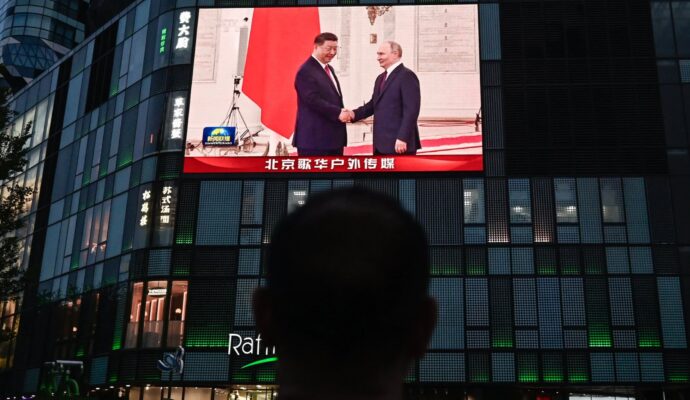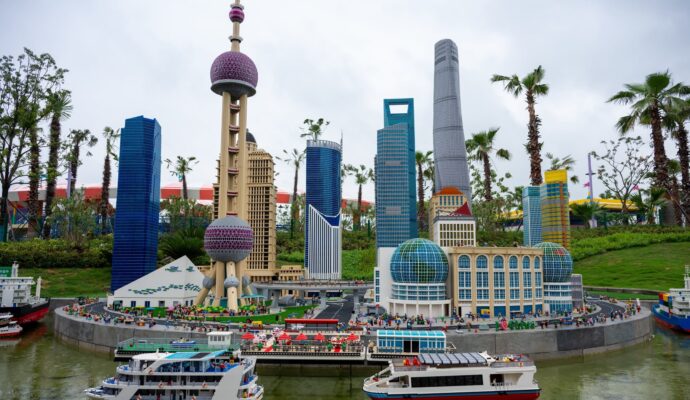
The September 25 election to choose the next chair of Taiwan’s Kuomintang (KMT) will be an important milestone in the party’s recovery from its nadir following the 2020 elections. Immediately after the stunning defeat, Johnny Chiang Chi-chen demonstrated real leadership in being willing to seek election and take responsibility for reforming and rebuilding a divided party. The chair election is in part a test of how the party judges Chiang’s performance. It also a contest about who can best organize the KMT to compete in the 2022 local and 2024 national elections.
There are two main candidates. Former party chairman Eric Chu Li-lun is contesting Chiang’s leadership. One other candidate, Chang Ya-chung, may be a minor factor. He is a pro-unification academic who was an advisor to Hung Hsiu-chu when she was the KMT’s presidential candidate in 2016.
Whoever wins will bring real change from the older generation KMT leaders, represented by former President Ma Ying-jeou and former party chairman Lien Chan. The world and the region have changed dramatically, and the KMT needs new leaders with new policies to respond to those changes.
The two main candidates, Chiang and Chu, have much in common. Both have degrees from U.S. institutions, and a record of foreign ties. Both have worked their way up through local and national elections and appointed political positions. Their proscriptions for reforming the KMT are similar, favoring open consultative decision-making, recruiting new members, appealing to young and independent voters, keeping a diverse party united. Both put priority on leading the party to electoral victory. Chiang has pledged not to run for president in 2024; Chu has not made such a pledge but has said he would resign as chairman if the KMT lost the 2022 local elections.
Nevertheless, they represent different elements within the party. At 49, Chiang is youngest person to serve as KMT chair. He is part of the youthful face of the KMT. He is Taiwanese from Taichung, Taiwan’s second largest city. His family roots include Hakka ancestors, so he is from the native or bentu element in the party. Chiang notes that his uncle, long-time journalist and DPP supporter Anthony Chiang, is one of his political mentors.
Chu is from Taoyuan. His background is mixed, with a mainlander father and Taiwanese mother. These things still matter. At 60, Chu is from a transitional leadership generation. He is not part of the older generation with direct ties to former President Chiang Ching-kuo. However, he links himself with the party’s past by stating that the core values of the KMT are derived from Sun Yat-sen and Chiang Ching-kuo.
In the context of this party election, their main policy differences relate to China. As party chair, Chiang has tried to move the KMT toward a new cross-strait policy that emphasizes the sovereignty of the Republic of China, democracy and human rights as core values, and defending Taiwan and its interests. The reform committee that Chiang appointed recommended in June 2020 that the KMT view the 1992 Consensus of “one China, respective interpretations” as a historical document and that future engagement with Beijing be premised on “a consensus based on the ROC constitution.” As those views were in line with ideas he had advocated, Chiang took the lead in announcing their recommendations. Unlike former party chairmen, Chiang has publicly criticized Beijing on a range of issues, including for suppressing democracy in Hong Kong, conducting military exercises around Taiwan, and restricting Taiwan’s international space.
The KMT elders, meanwhile, harshly criticized the reform committee’s cross-strait proposals for abandoning the 1992 Consensus. They forced Chiang to accept a compromise and base future engagement with Beijing on a “1992 Consensus based on the ROC Constitution.” Chiang has supported this compromise since it was adopted, repeating it in the September 4 candidate debate.
Chu did not play a public role in forcing this compromise. Recognizing the divisions within the party, Chu has said little about his cross-strait policy. In announcing his candidacy, he only advocated establishing a cross-strait “platform for cordial interactions and exchanges.” In the candidate debate, Chu spoke of establishing a channel with Beijing, without commenting on what would be the political basis for the channel.
Beijing’s suspicions about Chiang were reflected in their decision not to send the normal Chinese Communist Party (CCP) congratulatory message to him on his election as chairman in March 2020. His native roots and support for scrapping the 1992 Consensus underlie their suspicions. Unlike Chiang, who has not visited the mainland, Chu visited China as KMT chairman and was granted meetings with General Secretary Xi Jinping and other CCP leaders. Those in the KMT who place high importance on restoring dialogue see this as an asset for Chu.
In sum, this is a race between a young leader with strong Taiwan roots, who has been willing to take risks to reform the KMT so that it can broaden its appeal and compete nationally, and a cautious leader who has a record of dealings with Beijing who hopes to win with support from more traditional elements in the party.
Only KMT members, of which there are over 300,000, will vote in the chair election, so appealing to those beyond the party is not part of its dynamic. It’s all about who has more support within the party. In past elections, turnout has been light. Only 35 percent voted when Chiang was elected chair in 2020.
Of note, KMT members are overwhelmingly older. In 2019, only about 3 percent of members were under 40. This favors Chu. In addition, Chiang’s reforms have angered some older members. For example, his selection of a new leadership for the KMT’s military veterans organization, Huang Fu-hsing, irritated veterans, and some from the party’s old leadership have organized against Chiang. He has also been criticized for poor coordination between the party headquarters, the KMT caucus in the Legislative Yuan, and the KMT’s thinktank. But more than anything, it has been Chiang’s early advocacy for scrapping the 1992 Consensus that has been controversial, particularly with the party’s traditional base. Despite Chu’s vague statements, the older generation in the party believes he will be better able to restore dialogue with the CCP.
The little polling that has been done indicates that Chu has a substantial lead. Chu’s team expects him to score a decisive victory. If this is correct, judging the margin of Chu’s victory will become important. That is where Chang Ya-chung, running as a more hardline candidate, becomes a factor. It seems likely that Chang has support from oldline KMT members who were in 2020 presidential candidate Han Kuo-yu’s camp. With votes split three ways, it is uncertain that Chu will achieve 50 percent of the vote. As turnout is already likely to be low, not achieving a true majority would leave Chu with a weak mandate as the new leader of a still badly divided party.


